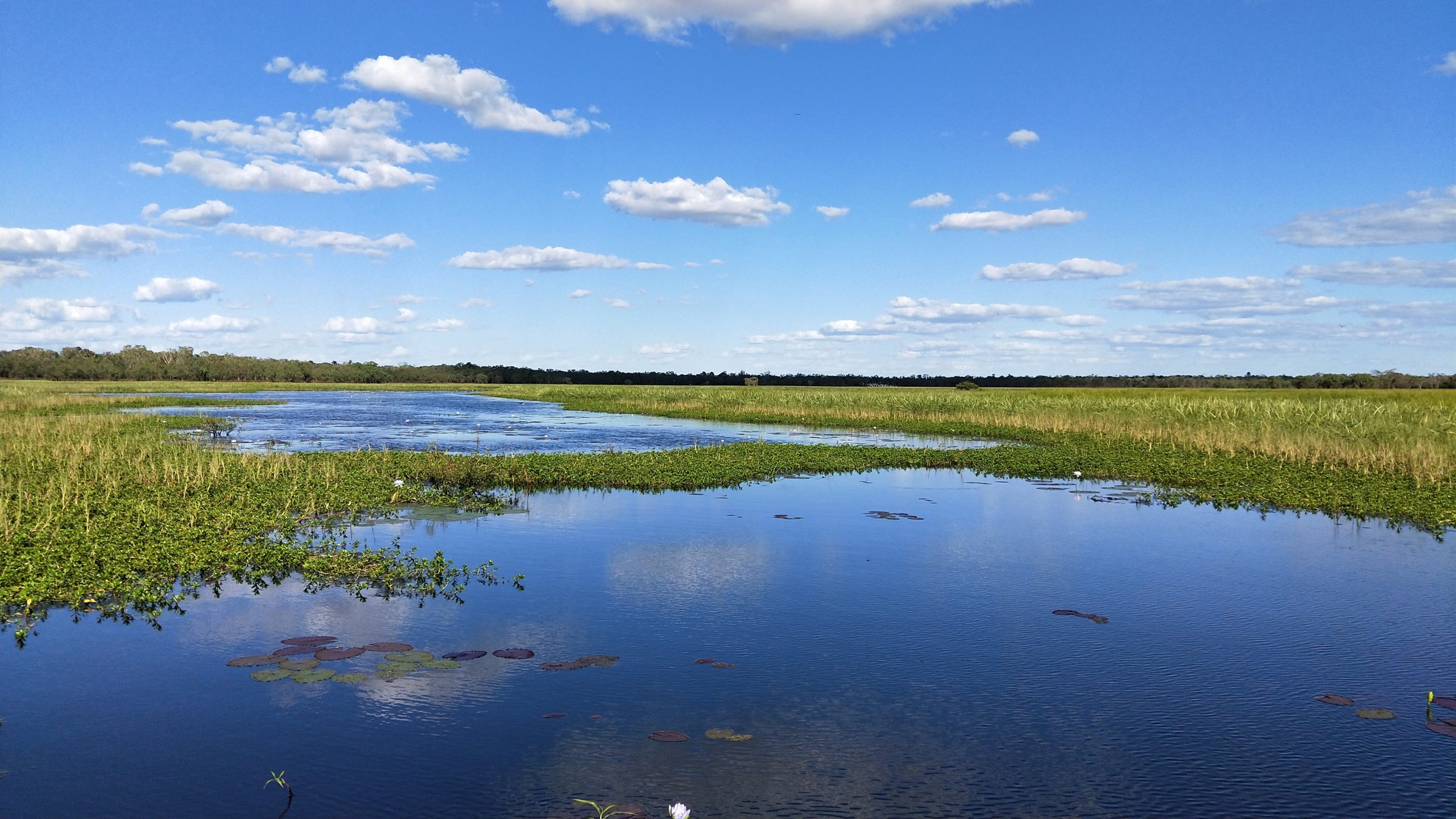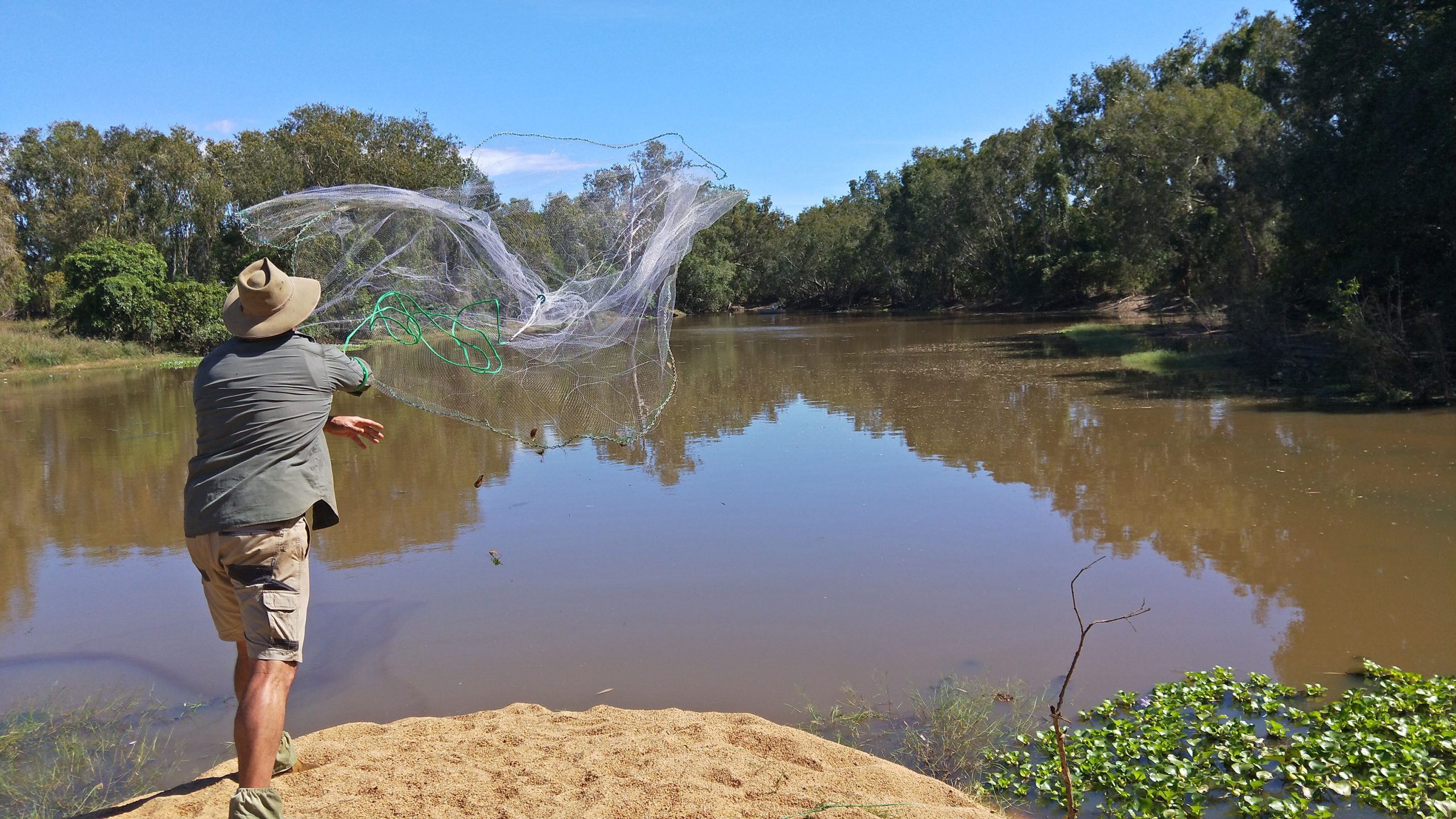18 December 2019
Research in northern Australia means being ready for anything, which the environmental water needs for the Mitchell River project team found when Cyclone Owen delayed a planned field trip to the north Queensland river.
The team took this in stride and worked hard throughout 2019 to increase understanding of the connections between the floodplain, river channel, wetlands and distributary ecosystems.

Ten Mile Swamp, photo Ben Stewart-Koster.
Initial analyses suggest that the extent of floodplain inundation is strongly dependent on river flows, and analysis of the chemistry of fish ear bones tell the story of how fish move between inundated floodplains and river channels. The team are also collaborating with Professor Edward Boone of Virginia Commonwealth University, USA to develop a model that will predict where various fish species have lived in the catchment at different life stages.
Fish tissue samples are also helping to understand how fish are feeding when they are in different parts of the catchment and what the food webs of the Mitchell River look like.
Working with the Kowanyama Aboriginal Land and Natural Resource Management Office for guidance on important sites for sampling and how to access them has been essential for the project.
NESP emerging priorities funding is supporting an extension of this research to assess the presence of invasive tilapia (Tilapia mariae) in the upper part of the catchment, map their current distribution and trace where they have come from.
For more information, see this research update or contact Dr Ben Stewart-Koster or Professor Stuart Bunn at Griffith University.

Cast-netting in the Mitchell River catchment, photo Ben Stewart-Koster.
Want to know more about the Resilient Landscapes Hub's activities and our research into practical solutions to environmental problems? Stay informed about activities, research, publications, events and more through the Hub newsletter.